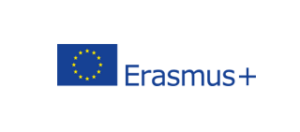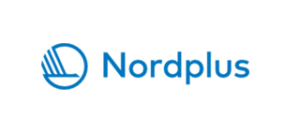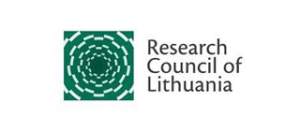Studies projects at the University are those that are related to studies or study programs and their development, quality assurance or organization.
University researchers have the opportunity to receive support for the implementation of study project activities. Below you can find out about possibilities of funding studies project activities in more detail.

The general objective of the ERASMUS+ programme is to support, through lifelong learning, the educational, professional and personal development of people in education, training, youth and sport, in Europe and beyond, thereby contributing to sustainable growth, quality jobs and social cohesion, to driving innovation, and to strengthening European identity and active citizenship. As such, the Programme shall be a key instrument for building a European Education Area, supporting the implementation of the European strategic cooperation in the field of education and training, with its underlying sectoral agendas. In addition, it is key in advancing youth policy cooperation under the European Union Youth Strategy 2019-2027 and developing the European dimension in sport.
The Programme has the following specific objectives:
• promote learning mobility of individuals and groups, as well as cooperation, quality, inclusion and equity, excellence, creativity and innovation at the level of organisations and policies in the field of education and training;
• promote non-formal and informal learning mobility and active participation among young people, as well as cooperation, quality, inclusion, creativity and innovation at the level of organisations and policies in the field of youth;
• promote learning mobility of sport staff, as well as cooperation, quality, inclusion, creativity and innovation at the level of sport organisations and sport policies.
More information you can find here.
Information about ERASMUS+ programme projects at University you can find here.

This Key Action supports:
• Mobility of learners and staff;
• Youth participation activities;
• DiscoverEU: action offering 18-year-olds the opportunity to have a short-term individual or group travel experience throughout Europe;
• The programme offers language learning opportunities to participants carrying out a mobility activity abroad;
• Virtual exchanges in higher education and youth.
More information you can find here.
More information about students exchange possibilities at Unvniersity under ERASMUS+ programme you can find here.

This Key Action supports:
• Partnerships for Cooperation, including Cooperation Partnerships and Small-scale Partnerships;
• Partnerships for Excellence, including Centres for Vocational Excellence, Teachers Academy and Erasmus Mundus Action;
• Partnerships for Innovation, including Alliances and Forward-looking projects;
• Capacity Building projects in the field of youth;
• Not-for-profit European sport events.
The Actions supported under this Key Action are expected to contribute significantly to the priorities of the programme, to bring positive and long-lasting effects on the participating organisations, on the policy systems in which such Actions are framed as well as on the organisations and persons directly or indirectly involved in the organised activities.
This Key Action is expected to result in the development, transfer and/or implementation of innovative practices at organisational, local, regional, national or European levels.
More information you can find here.

This Key Action supports:
The European Youth Together action, (targeting both youth organisations at grass root level and larger organisations), supporting partnerships across borders. Activities under this action should contribute to widening the outreach towards young people to ensure a diversity of voices, and reach a diverse range of young people within and beyond youth organisations, including youth with fewer opportunities. They should involve a variety of traditional and digital channels and facilitate the development of partnerships and networks, enabling participation and access for grassroots NGOs and youth movements.

The Jean Monnet Actions will support:
More information about Jean Monnet actions you can find here.

More about ERASMUS+ programme funding opportunities, calls and programme guide you can find here.
Information about ERASMUS+ programme projects at University you can find here.
Contacts for more information:
Research and Innovation Centre
K. Donelaičio St. 73, Kaunas, Room 422, 426
phone: +370 37 300 197, +370 665 15 897
email: mipc@ktu.lt

The Nordplus Programme offers financial support between partners in the area of lifelong learning from the eight participating countries and three autonomous regions in the Baltic and Nordic area.
Nordplus is aimed at all educational sectors and organisations and institutions involved in learning and education. Only institutions or organisations can apply in Nordplus – you can not apply as an individual.
Only applicants from the Nordic countries – Denmark, Norway, Sweden, Finland, Iceland, the Baltic countries – Estonia, Latvia, Lithuania – and the autonomous regions of Åland, the Faroe Islands and Greenland, which act as independent countries in Nordplus, are eligible for grants. Institutions placed outside the Nordic and Baltic countries are not eligible for funding from the programme but can participate in Nordplus projects if they cover their own expenses.
More about Nordplus programme you find here.
More about Nordplus projects of KTU researchers you can find here.

Nordplus conisists of the following sub-programmes:

More information about Nordplus programme and calls you can find here.
Information about Nordplus programme projects at University you can find here.
Contacts for more information:
Research and innovation projects centre
K. Donelaičio St. 73, Kaunas, Room 422, 426
phone: +370 37 300 197, +370 665 15 897
email: mipc@ktu.lt

The Research Council of Lithuania (RCL) aims to encourage students to engage in active research and arts activities and raise research or arts competence. For that purpose, RCL finances the research projects carried out by students during their summer internships and study semesters during their free time from auditory classes, which are under the guidance of the research supervisor.
More information about financing options can be found on the RCL website.
Information about KTU students projects you can find here.

Students can carry out research projects during semesters. Students of the first, second cycle and integrated studies can participate in the competition, except for those who are first-year students of the first cycle and integrated studies at the time of application.
Projects can be carried out by students with a weighted average of 8.0 or higher in all studied subjects in the last semester. The supervisor of the study must have a doctorate in science (arts) or the status of a recognized artist.
At the end of the project, the student will have to submit a report on the project’s research activities (art research). Also present the project at the students conference organized by the Council.
More information about financing options can be found here.

Summer Scholarships
Student’s participation in research during the summer is research work carried out by a student during the summer vacation according to an individual program under the guidance of a research supervisor. Duration of activity – 2 months.
Students of the first, second cycle and integrated studies can participate in the competition, except for those who are first-year students of the first cycle and integrated studies at the time of application.
Projects can be carried out by students with a weighted average of 8.0 or higher in all studied subjects in the last semester. The supervisor of the study must have a doctorate in science (arts) or the status of a recognized artist.
At the end of the project, the student will have to submit a report on the project’s research activities (art research).
The application is submitted by the supervisor of the research together with the executing institution.
More information about financing options can be found here.

More information about funding for students research projects you can find here.
Research and Innovation Center
K. Donelaičio St. 73, Kaunas, Room 426
phone: +370 37 300 197, +370 665 15 897
email: mipc@ktu.lt
For University researchers studies and R&D projects activity documents, information about relevant calls, conferences or other events, related to studies and research projects activities are published on the University’s internal intranet (the general login data of KTU employees is used when logging in with sso trough vpn*):
*vpn – access is only possible with a secure connection through a virtual private network.
sso – Single Sign-On Authentication are used when connecting to the University’s IT services and / or systems.
At the University, the project activities of the external funding for research, innovation and studies are coordinated by the Research and Innovation Projects Centre. The aim of the Center is to ensure the quality of R&D and study projects applications preparation and projects management of academic departments and the development of relevant competence, in order to successfully compete for competitive funding of R&D and study activities in Lithuania, the European Union and beyond.
K. Donelaičio St. 73, Kaunas, Room 422, 426
phone: +370 37 300 197, +370 665 15 897
email: mipc@ktu.lt